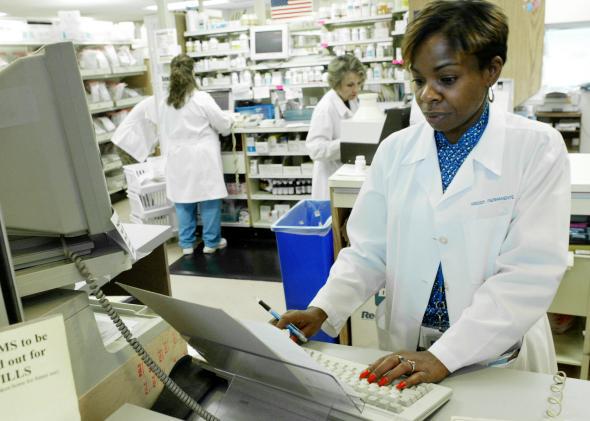If you’re reluctant to take medical advice from a smartphone, a new app that requires a prescription may be just what the doctor ordered. Or it may be only halfway to its goal.
BlueStar is a prescription-only app for users with Type 2 diabetes. It received FDA approval in 2010 and has functions like reminding patients to check and record their blood sugar levels (the app doesn’t do the tracking itself), or offering advice. Users input what they eat and what their glucose levels are throughout the day and the app suggests how long they should wait between blood sugar checks and how they should adjust their medication dosage, if at all.
The app, created by mobile health developer WellDoc, gives reminders to eat or take medicine and works on computers, tablets, and smartphones (iOS and Android). While anyone can download it, the app doesn’t function without a valid prescription code. Currently a handful of patients around the country are piloting BlueStar, and WellDoc is planning the app’s full release for later this year. The cost of using the service will be roughly $100 per person per month, but WellDoc has already gotten a group of corporations to set an example by expanding their health coverage to include the app.
Sounds pretty good, right? Sonny Vu, the co-founder of Misfit Wearables in San Francisco, told IEEE Spectrum that, “This is a piece of software getting the same treatment as a medical device … It’s pretty world-changing.”
But there are hurdles before BlueStar or anything like it is widely adopted. The Quantified Self movement is becoming more ubiquitous through products like the FitBit and Jawbone Up, but BlueStar is a different type of service. Unlike a wearable sensor, the app relies on patients to accurately record their data at the same time that it is relying on that data to dispense crucial information. Which seems kind of weird. On the other hand, sensors are subject to error too if they malfunction, run out of battery power, or aren’t being worn by their user. And perhaps the BlueStar framework would provide motivation for diabetes patients to carefully record their blood sugar levels long term.
The prescription requirement and FDA approval both help legitimize BlueStar, but it’s unclear if the app will actually be useful to patients and doctors, who could be deluged by patient updates from BlueStar. Almost 26 million people in U.S. have diabetes, so it’s an ample test population … if anyone uses the app of course.
